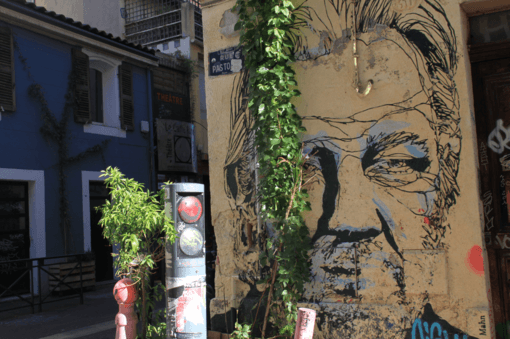
Photo by Jeanne Menjoulet | CC BY 2.0
Being a netizen, to use that popular term of sociological derivation, can be a difficult business. It presumes digital engagement, often of the sharper sort. To become a fully-fledged member of such citizenry, however, presumes access, a degree of Internet speed and appropriate platforms. Absent those, then different forms of activism must be sought.
Governments and authorities the world over have come to appreciate that either the activity itself is controlled (limiting internet access, for one), or the content made available on the Internet (the Great Firewall of China). The resonant cliché there is that the one who controls the narrative controls history, or can, at the very least, blind it.
Out of such tensions and tussles comes Julian Assange, a member of that unique breed of cyber insurrectionists, ducking and weaving through the information channels with varying degrees of success. To function as a publishing figure, he requires access to the Internet, a phenomenon that presumes an acephalous society.
For years, his enemy has been the concentration of information in the hands of the few, the greedy sort who horde information from the commonweal as they encourage ignorance. Publishing classified material has become a form of enlightenment, and it remains a furious debate waged across the political spectrum.
Little wonder, then, that Assange has become a political activist par excellence. If only he were merely, as Britain’s junior minister Sir Alan Duncan would have it, a holed up “miserable little worm.” Better a worm, retorted Assange to the minister’s remarks in the House of Commons, “a healthy creature that invigorates the soil, than a snake.”
He encourages others to revolt, and promises assistance to the restless. In March last year, he delighted in queries about the problems posed by the leaked CIA cyberespionage toolkit. The interest of Silicon Valley firms had been piqued.
“We have decided to work with them,” explained Assange at his online press conference, “to give them some exclusive access to some of the technical details we have, so that fixes can be pushed out.” Such advice would assist the companies to patch their products and render the task of accessing data by intelligence services more onerous.
Such announcements, not to mention frenzied activity on such social media platforms as Twitter, can only take place by the good grace of his hosts of five years, those staff at the Ecuadorean embassy in London whose patience has, at times, been tested.
The pact between the Ecuadorean state and tenant Assange is hardly one of steel. It more resembles rubber, stretching or narrowing accordingly. When it has suited Ecuadorean interests to protect a troublesome political celebrity whilst permitting him to niggle the likes of the United States, Assange has been permitted vast, anarchic leeway.
Nick Miroff in the The Washington Post went so far as to deem Ecuador’s initial treatment of Assange as that of one who had won a trophy. Even as the Ecuador’s Rafael Correa took measures against the press in his country, he would still “poke Washington in the eye and look like a champion for press freedom”.
When still president, Correa dressed it all as a matter of obligation. “Ecuador fulfilled its duty, we gave him sovereign asylum, and finally the Swedish judicial system has closed the file and will not press charges against Assange.”
On Wednesday, the rubbery aspect of the relationship took another shape. Assange’s access to the internet would be halted. His digital mischief, it seemed, had gotten out of hand:
“The government of Ecuador warns that Assange’s behaviour, through his messages on social networks, put at risk the country’s good relations with the United Kingdom, the other states of the European Union, and other nations.”
Such interventions tend to be inconsistent and arbitrary. In 2016, when WikiLeaks had emerged as an information guerrilla force of prominence in the US presidential election, the embassy took similar measures to cool the ardour. Assange had gotten overly zealous, when in fact, he was simply fulfilling his brief. “The government of Ecuador,” came the reasons in 2016 from the Ecuadorean Foreign Ministry, “respects the principles of non-intervention in the affairs of other nations, does not meddle in electoral campaigns nor support any candidate in particular.” Gradual, tentative realignments were taking place in Latin America, and the trophy tenant had lost some lustre.
On that occasion, WikiLeaks had released hacked Democratic National Committee emails and those of Hillary Clinton’s campaign advisor, John Podesta. The US intelligence viewpoint on this was simple and simplistic: Assange had become a proxy of Russian interests. Undue electoral interference had been featured. Forget, they insisted, on the light darkly shining upon the Clinton stranglehold of the Democrats, and the sordid plotting against Bernie Sanders.
What prompted the latest clipping of Assange’s wings? Tweets, perhaps, shot through on Monday challenging the British-led account that Russia was directly responsible for the poisoning of Sergei Skripal and his daughter in Salisbury.
He had hardly been scurrilously contrarian with his remarks, though the current atmosphere turns tentative questions into howls of dissent. Odd, he claimed, that the expulsion of Russian diplomats had taken place “over an unresolved event in the UK and that the US expelled nearly three times as many diplomats as the UK”. While Russia might well have been involved, current evidence in the absence of independent confirmation was unverified and skimpy.
As with any testy relationship marked by a degree of self-interest, partners will squabble. Compromise will be sought, though this is hardly likely to quell Assange’s insatiable pursuit of activism. As the latest move suggests, arbitrariness is hard to avoid, and Assange remains a guest. What matters is whether the reins will continue to be pulled in. Courtesy and good graces tend to shrink in the face of brute politics.